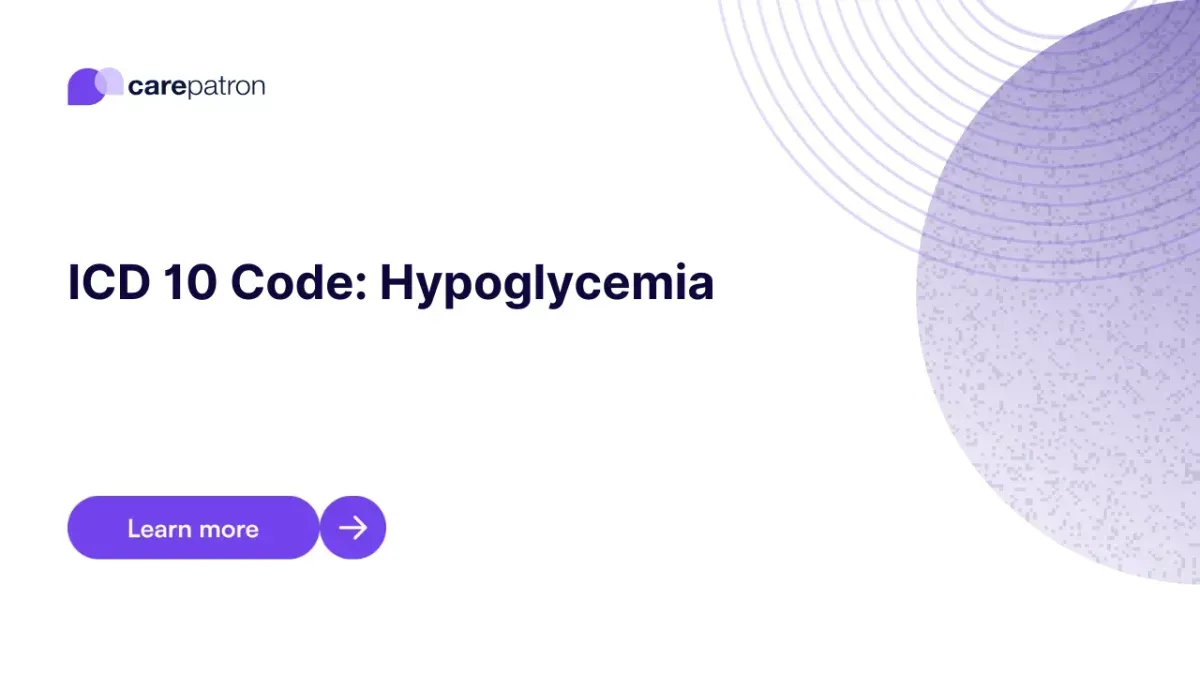
Hypoglycemia ICD-10-CM Codes
Read this short guide to learn about Hypoglycemia ICD codes you can use!
Use Code
Commonly asked questions
A person must have blood sugar levels or hypoglycemia levels between 70 and 100 milligrams per deciliter (mg/dL).
The only way to check if a person has Hypoglycemia is to conduct a blood test using a glucometer. The glucometer has a small needle to prick a person’s finger to take a blood sample.
Adopting a lifestyle that includes regular exercise and a diet with enough carbohydrates and sugar is best to prevent hypoglycemia. If a person is required to take maintenance medicine, they must follow the doctor’s orders to a T.
EHR and practice management software
Get started for free
*No credit card required
Free
$0/usd
Unlimited clients
Telehealth
1GB of storage
Client portal text
Automated billing and online payments
